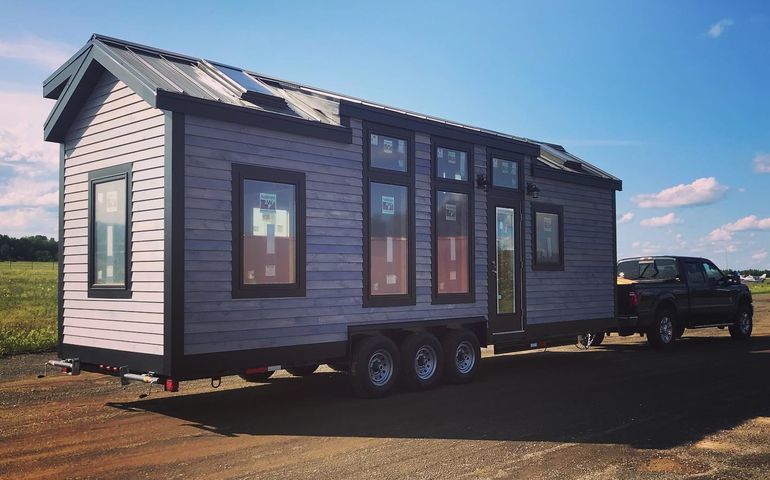State loosens restrictions on tiny homes, but much remains in the hands of municipalities
 COURTESY / TINY HOMES OF MAINE
Tiny homes, like this one from Tiny Homes of Maine, are built to be easily moved between locations.
COURTESY / TINY HOMES OF MAINE
Tiny homes, like this one from Tiny Homes of Maine, are built to be easily moved between locations.
Gov. Janet Mills last week signed into law a bill that allows municipalities to set their own guidelines for tiny homes, those of 400 square feet or less that are on wheels.
The new law allows municipalities to set their own rules for tiny homes that are less restrictive. It also allows tiny homes on undeveloped or developed housing lots. The homes could be assessed for property taxes after 180 days, in certain circumstances.
"My take is this simply gives Maine municipalities 'permission' to allow tiny homes (as defined in title 29A). A lot of towns were already allowing tiny homes without issue, but some towns (both big and small) were struggling with allowing them because they had no guidance on 'how,'" Corinne Watson, a proponent of the new law and co-founder of Houlton-based Tiny Homes of Maine, told Mainebiz on Monday.
Watson, who was named to the 2020 Mainebiz Next List, says tiny homes are affordable, aesthetically appealing, portable and energy efficient. Her customers are looking to reduce their living expenses and downsize, she said last fall.
Indeed, the tiny home trend has swept the nation in recent years, and You Tube and Instagram offer a range of videos and images of how people have designed and built tiny homes. The homes, which are built on a heavy duty trailer chassis, are equipped with all the features of homes, but on a smaller scale.
The hitch often comes in whether they pay local taxes, are hooked up to local utilities and how they dispose of waste.
Portland has considered tiny homes as a way to alleviate the housing crisis. For now, the city effectively bans tiny homes on wheels with its requirement that homes have a foundation, frost or slab wall and meet the state Manufactured Housing Act. It also requires homes to comply with the Maine Uniform Building & Energy Code.
The only Maine municipalities that specifically allow tiny homes are Chelsea, New Gloucester, Wiscasset, Stonington and Hollis, according to the Tiny Homes Alliance USA. The site does not specify whether the homes allowed can be on wheels or if they're required to have a foundation.
The state law, which was introduced by state Rep. David Harold McCrea of Fort Fairfield, frees up municipalities to allow tiny homes as a primary structure where it would allow a single-family home. No more than one tiny home can go onto that lot — unless the total square footage is 400 square feet or less. Setbacks from property lines may also be reduced.
Municipalities may also set design criteria for tiny homes, for instance requiring shingled roofs or exterior features.
Mainebiz web partners
Great start
The standards for tiny homes adopted by the City of Portland are reasonable, and other municipalities need to develop their own similar regulations.










2 Comments